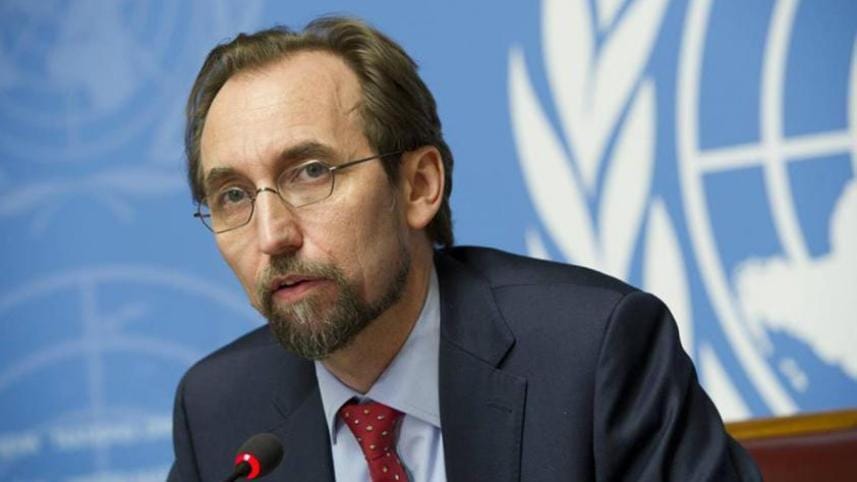Rakhine a human slaughterhouse of recent times: UN

UN High Commissioner for Human Rights Zeid Ra'ad Al Hussein has described Northern Rakhine in Myanmar as one of the most prolific 'slaughterhouses' of humans in recent times.
He said not enough was done, early and collectively, to prevent the rising horrors in Rakhine and other places.
"Eastern Ghouta, the other besieged areas in Syria; Ituri and the Kasais in the DRC; Taiz in Yemen; Burundi; Northern Rakhine in Myanmar have become some of the most prolific slaughterhouses of humans in recent times…," Zeid said in Geneva on Monday.
The UN rights boss was addressing the opening of the 37th session of the Human Rights Council, a copy of his speech UNB received from Geneva.
He said time and again, his office and he has brought to the attention of the international community violations of human rights which should have served as a trigger for preventive action.
"Time and again, there has been minimal action. And given this is my last address as High Commissioner at the opening of a March session, I wish to be blunt," said the UN rights chief.
He said the Rohingyas are dehumanised, deprived and slaughtered in their homes – with all these examples bedevilling them, why are they doing so little to stop them, even though they should know how dangerous all of this is.
Zeid said the second to those who are criminally responsible -- those who kill and those who maim -- the responsibility for the continuation of so much pain lies with the five permanent members of the UN Security Council.
"So long as the veto is used by them to block any unity of action, when it is needed the most, when it could reduce the extreme suffering of innocent people, then it is they – the permanent members – who must answer before the victims," he said.
France has shown commendable leadership among the P5 in championing a code of conduct on the use of veto; the United Kingdom has also joined the initiative, now backed by over 115 countries.
Zeid said it is time, for the love of mercy, that China, Russia and the United States, join them and end the pernicious use of the veto.
The United Nations has now documented more than 688,000 Rohingyas who have fled to Bangladesh since the Myanmar military began their offensive against Rohingya civilians in August 2017.
Medecins Sans Frontieres has recently documented almost 7,000 Rohingya civilians killed in just one month last year, including 730 children. They believe this figure is likely to be significantly higher than their initial estimates.
On January 16, Bangladesh and Myanmar signed a document on 'Physical Arrangement' which will facilitate the return of Rohingyas to their homeland from Bangladesh.
The 'Physical Arrangement' stipulates that the repatriation will be completed preferably within two years from the start of repatriation.



 For all latest news, follow The Daily Star's Google News channel.
For all latest news, follow The Daily Star's Google News channel.
Comments